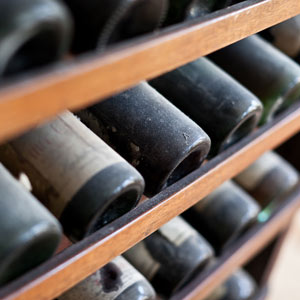Prior to the 1st April, when the new Western Cape Liquor Act came into effect, Cathy Marston wrote up various interviews she had with liquor lawyer, Danie Cronje, who spelt out many of the implications of the new regulations.
One of the restrictions that came to light from one of these interviews was that which decreed no individual may hold more than 150 litres of alcohol without permission. This would affect the possibly hundreds of private wine collectors, who purchased wine and other liquor for their own consumption.
Even I, who had followed the discussions regarding the new Act over several years, was surprised when I read this. I decided to take up the issue with the Liquor Board personally.
The members of the Liquor Board to whom I spoke were both polite and prompt in their attempts to help, but eventually it was someone higher up the chain, Johan Dreyer, who sent me copies of the new Liquor Act and Regulations with the lengthy and sometimes complicated details of requirements to obtain the correct license to hold and sell liquor.
Wine collectors
When I pointed out that I, as a wine collector, had absolutely no interest in selling my collection but merely wished to legally keep a cellar of wine for maturation and sharing with family and friends, Mr Dreyer phoned to inform me Mr Vincent Bergh, the Presiding Officer of the Liquor Licensing Tribunal would like to meet with me to discuss the issue and a press release they intended releasing.
After the above communications and meeting with Mr Bergh, it was clear that the wine collector issue is a troublesome one, one that had been recognised when the new Act and the regulation regarding the 150 litre maximum was being discussed, the main purpose of which was to close down illegal shebeens.
Whilst there was sympathy for wine collectors, at the same time, their bona fides had to be proved.
Affidavit
The following information, which should be set out in the form of an Affidavit, is what each individual who has a cellar with more than 150 litres of alcohol, has to supply to the Liquor Board. I have added the notes in brackets after some of the requirements.
This is a once off application, unless you move house, when it would need to be repeated.
There is no cost involved by applicants to the Liquor Board (only what it costs you to assemble the information):
– Full names, identity number and address of the applicant
– Premises where liquor wll be stored
– Purpose for which liquor will be used (eg private for sharing with family, friends)
– Motivation for application (I buy wine to lay it down and mature it under suitable conditions)
– Nature, approximate value and quantity of liquor to be stored (so many litres of white, red, fortified, sparkling, beer, spirits to an approximate value of R)
– Copy of ID of applicant
– Proof of address
– Plan of the premises where the liquor is to be stored, indicating the address, all rooms with doors, windows and measurements and the use of each room. The proposed storage area is to be indicated in colour on the plan. Colour photographs of the premises and storage area. (This could be a difficult one for some, but it’s to make sure the wine isn’t being stored in, say a Wendy house with easy access for outsiders. The premises referred to for photos is only where the liquor is stored, from both outside and inside.)
– The Designated Liquor Officer of the local police station to indicate on the application whether he/she supports the application or not. (This is something new, but Mr Bergh assured me the police have been informed about this requirement)
– The application to be commissioned in front of a Commissioner of Oaths.
Any queries regarding the above should be directed to Johan Dreyer – Johan.Dreyer@westerncape.gov.za
Once complete, the information should be sent, via e-mail to Johan Dreyer above or in print form addressed to him at 6th Floor, Waldorf Building, St George’s Mall, Cape Town.
In your interest as a wine collector to act now
As the Act is now in force, all of us with cellars of more than 150 litres are technically illegal, so it’s in our interests to submit this Affidavit as soon as possible.
Apart from which and as Cathy Marston mentioned in one of her articles, if someone has a gripe with you and knows you have a cellar, there is nothing to stop them tipping off the police.
Written by Angela Lloyd and published on www.grape.co.za

